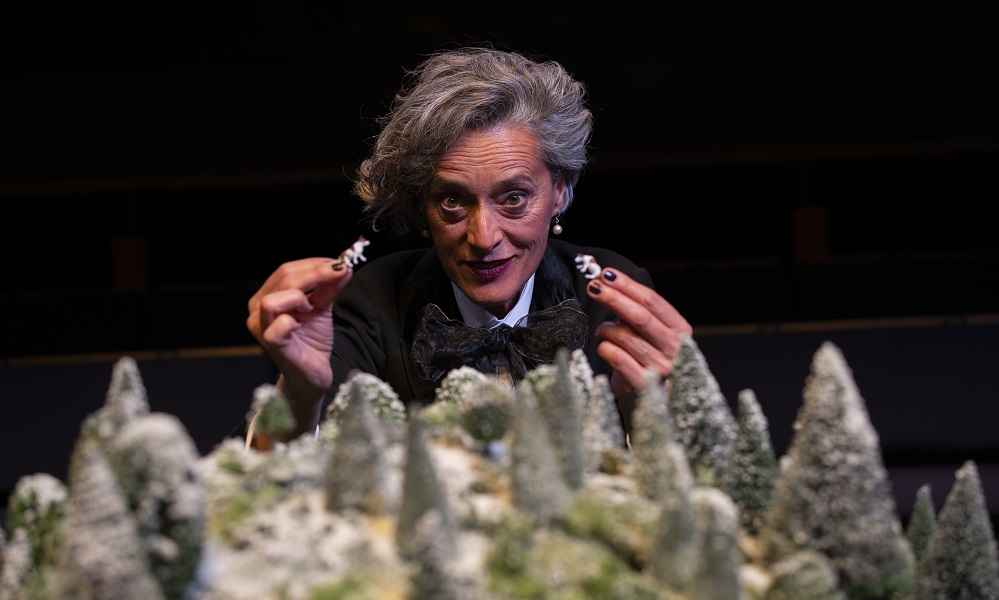
Review: THE MISFORTUNE OF THE ENGLISH, Orange Tree Theatre
Review: THE MISFORTUNE OF THE ENGLISH, Orange Tree Theatre
“It is alive, relevant, moving, and very well crafted with many an interesting concept explored throughout.”
The new play by Pamela Carter explores the not-so-well-known incident in Anglo-German history: a tragic hiking trip in South-Western Germany in 1936, in which five young students from Strand School passed away from exposure when caught in a blizzard. The story itself is far more complex and involves themes of prideful patriotism and egotism, as personified by Kenneth Keast, the boys’ teacher ultimately responsible for the tragedy, yet never brought to justice.
Other reviewers lamented the play’s at times too obvious political allusions and frequent anachronisms – I, frankly, do not. Theatre is, by its very nature, political: has been and always will be. Carter’s play makes the best of it, weaving in the historical plot of objectively niche interest into a wider story of imperialism, pride and political mismanagements. Honestly speaking, I would be disappointed if those poignant allusions were absent – the 1930s were a disastrous decade, a decade of horrible mistakes and awful traumas, a decade when the entire world saw an individual rising to tremendous power based solely on sheer hatred and brutal strength – and said nothing. The more people understand how important is to remind us of these times and these lessons, the better. For everyone.
Three young protagonists, played by Matthew Tennyson, Vinnie Heaven and Hubert Burton are just boys. Merely boys. Beaming with sad ignorance and naivety, they are as charming and annoying as only teenage boys can be. We are both drawn to love them – but also ponder on what sort of adult they would become. Of course, this question is left never to be answered. Tennyson is particularly brilliant as the Jewish student Lyons who proudly proclaims “I’m a Strandian!” whilst trembling with fear and cold. He doesn’t belong, and it only becomes more evident as the action progresses.
The monologue at the end, voiced out with charm and wit by the wonderful Éva Magyar, could perhaps be a tad more polished as it does seem quite jarring which is perhaps the intention. It is also slightly too long, especially in that it interrupts a moment of pure tension. But it does a great job balancing information and bringing the splattered throughout political allusions to a concrete metaphor.
An interesting take was never to show Keast. He is only talked about – usually with awe and wonder, love even – but never present. Just as he wasn’t present there for his students when they needed him most.
It is, overall, a piece of great theatre. Yes, it’s not perfect. Yes, at times it even seems a bit unfinished. But it is alive, relevant, moving, and very well crafted with many an interesting concept explored throughout. And it doesn’t fail to make one ponder: are we also following a Keast of our time?
Orange Tree Theatre, until 28 May
Image credit: Ellie Kurttz







